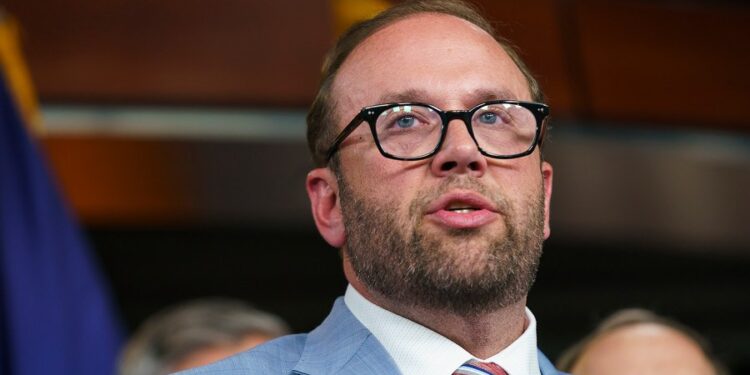
The Republican chair of the House’s tax writing committee called on Congress to quickly extend President-elect Trump’s 2017 tax cuts as Senate GOP leaders plan to move first on border funding.
Senate leaders unveiled a plan earlier this month to use the first of two reconciliation bills to secure funding for border security and immigration law enforcement — and wait to pass tax reform.
House Ways and Means Committee Chair Jason Smith (Mo.) criticized the Senate plan as “reckless” as several provisions in the 2017 Tax Cuts and Jobs Act are set to expire at the end of next year.
Citing high inflation that has eaten into Americans’ paychecks since the pandemic, Smith warned that the average American taxpayer will see taxes increase by 22 percent if the 2017 tax cuts are not extended. The Hill asked the Ways and Means Committee how it arrived at that figure.
“For the past four years, Americans have watched high prices eat away at their paychecks and financial well-being. A 22 percent tax increase would only compound that pain — particularly for lower-income Americans living paycheck to paycheck,” Smith said.
“Washington does not need to take more from workers, families, farmers, and small businesses. Congress needs to act swiftly to take this threat of a tax hike off the table and give the American people assurances that the relief they have been demanding has arrived,” he added.
A spokesperson for incoming Senate Majority Leader John Thune (R-S.D.) did not immediately respond to The Hill’s request for comment.
Several tax lobbyists previously told The Hill that they are also worried the delay could derail reform, especially given the House’s razor-thin Republican majority.
While budget reconciliation would allow the GOP to pass bills with a simple majority, House Republicans would need near-unanimous support to pass the bill along party lines.
The Republican conference is rife with sticking points as budget hawks squawk and some House Republicans insist on increasing the state and local tax deduction. Tax writers will also have to figure out how to fold in Trump’s populist campaign promises including no taxes on tips, which could drive up the bill’s price tag.






